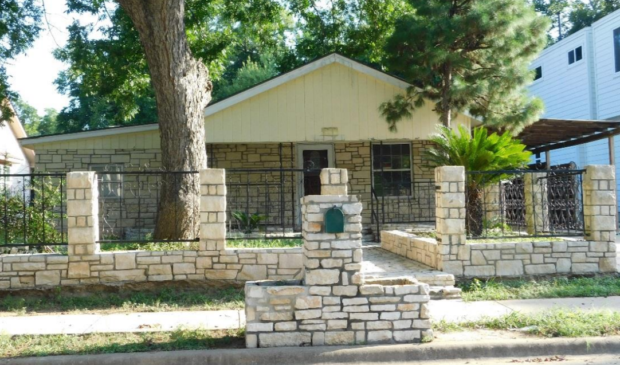Rendon house denied historic preservation zoning
Friday, January 24, 2020 by
Ryan Thornton The East Austin home of the late Edward Rendon Sr. will not be getting the historic zoning designation desired by some members of the Rendon family.
If granted, the designation would have halted the plans of Rose Rubio, a majority owner of the 1705 Haskell St. property and one of Rendon’s daughters, to sell the house to a developer.
Bertha Delgado, Rendon’s granddaughter, urged City Council to step in and grant the designation Thursday afternoon. “If you do not pass it, it will be demolished,” she said. “We have an opportunity to save this home.”
A majority of Council members, however, expressed discomfort taking a side in the matter.
Council Member Natasha Harper-Madison said the request amounted to Council “interfering in what is clearly a family concern.”
For all Council knows, she explained, it could have been Rendon’s wish that his family be able to build wealth through the natural growth of the city’s real estate market. By granting historic designation despite the protests of Rubio and other family members, Council would limit the family’s ability to profit from its home, currently valued at $592,000.
Council Member Pio Renteria also questioned the validity of the historic claims made by Delgado and supported by Historic Preservation Officer Steve Sadowsky.
Among other claims, Delgado has said that many important political meetings have taken place inside the home, among them a meeting with Cesar Chavez, a claim that several family members harshly disputed.
While Renteria did not question that Rendon is worthy of recognition for his many contributions to the East Austin community, he noted that he lived a block from the house and doesn’t remember any political meetings, including any involving Cesar Chavez, taking place in the home.
“I just can’t understand that you would come to us and say that it had a lot of significant community meetings there when the family that grew up there is saying that it didn’t,” Renteria told Sadowsky.
Sadowsky told Council the historic significance of the home is not necessarily connected to the purported events, but with the house’s association with Rendon since he purchased the home around 1961.
Council members Leslie Pool and Kathie Tovo each spoke to the value of dedicating the home for historic preservation simply on the merit of it having been owned by Rendon. Regardless of the events that may or may not have taken place, Tovo said the city’s historic designation process is intended to capture the broader value that a site has within a community.
To go against the wishes of Rubio, however, who is an 80 percent owner of the home, Council needed to approve the request with nine votes, a supermajority.
Pool moved approval to rezone the property from Single-Family Residence – Neighborhood Plan (SF-3-NP) to Single-Family Residence – Historic Landmark – Neighborhood Plan (SF-3-H-NP) . The vote failed 3-3-3, with Council members Alison Alter, Tovo, and Pool voting yes; Ann Kitchen, Paige Ellis, and Renteria against; and Greg Casar, Delia Garza, and Harper-Madison abstaining. Mayor Steve Adler and Council Member Jimmy Flannigan were absent for the vote.
The vote goes against the recommendations of both the Historic Landmark Commission and the Planning Commission.
Pool said the denial is a lost opportunity for what could have been an affordable housing site that will likely instead become an expensive residential development.
According to Mark Rogers of the Guadalupe Neighborhood Development Corporation, an affordable housing nonprofit, members of the Rendon family reached out last year to see if the organization would be interested in buying the property to potentially build affordable housing. Rogers told the Monitor that he expressed interest but planned to wait out the historic designation process.
If the designation had been granted, Rogers said he had thought there could be a possibility that Brian Potter, the attorney handling the property sale, would offer a contract to the nonprofit. Without the designation, however, he said Potter is likely to go forward with the existing demolition contract.
Up to this point, Rogers said, no affordable housing plan had been developed. He had thought there may have been potential to put up to four affordable units on the site, depending on availability of funding from the 2018 affordable housing bond and other sources.
“The property was definitely worthy of historic designation,” Rogers said, “but money talks in this town.”
Photo courtesy of the city of Austin.
The Austin Monitor’s work is made possible by donations from the community. Though our reporting covers donors from time to time, we are careful to keep business and editorial efforts separate while maintaining transparency. A complete list of donors is available here, and our code of ethics is explained here.
You're a community leader
And we’re honored you look to us for serious, in-depth news. You know a strong community needs local and dedicated watchdog reporting. We’re here for you and that won’t change. Now will you take the powerful next step and support our nonprofit news organization?











